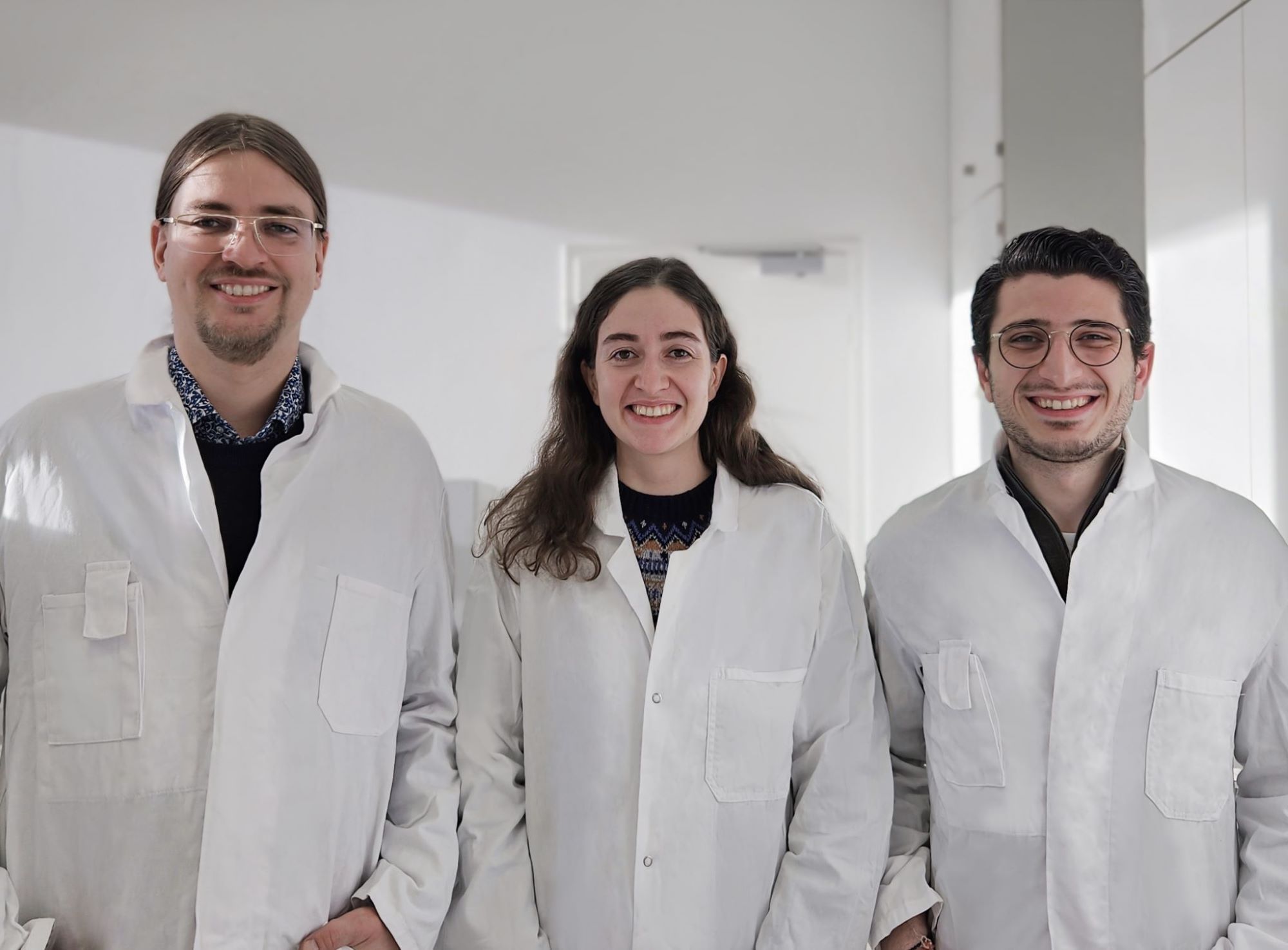The Lee Kuan Yew Global Business Plan Competition 2023 marked a turning point for biotech startup MEDEA Biopharma. A year after the competition founder Giorgi Khubua still fondly calls it the “happiest time of his life”.
Nine months after its founding, Germany-based biotech startup MEDEA Biopharma's journey took a pivotal turn at the Lee Kuan Yew Global Business Plan Competition.
At the deep-tech startup pitch competition in Singapore held in September 2023, MEDEA not only won the top prize of S$100,000 in the BETA category out of over 1,000 submissions from around the world, it also clinched the Wavemaker Investment Prize and the Public Choice Award.
In the year since, MEDEA – which specialises in the development of a new generation of sustainable and environmentally friendly antibacterial solutions based on bacteriophages (phages) -- has grown by leaps and bounds. Upon returning home to Germany, MEDEA closed a pre-seed investment round of 1.6 million euros in December 2023.
One of the company’s founders Giorgi Khubua said, “Some of the investors had already committed to the round, but our win in Singapore obviously granted us even more credibility and played a significant role.”
In addition to the competition and investment wins, MEDEA has scored several more grants, opened a new laboratory in Germany in February 2024 which is “much bigger and more modern with state-of-the-art equipment”, made their first hires to grow the team from its three co-founders to a team of nine, and actively participated in startup challenges and conferences.

Giorgi (extreme right) with the two co-founders of MEDEA Biopharma, Managing Director Rüdiger Trojok and Chief Scientific Officer Dr Elene Kakabadze.
Asia: Within the next 5 years
Giorgi reckons that the company’s swift growth is because antibiotic resistance is a very serious global issue. It is estimated that this problem contributes to around 5 million deaths a year.
While MEDEA is currently focusing on using their solutions to heal animals, the plan is to extend this to humans in the future.
Said Giorgi, “We are developing biological sustainable substances that have no side effects. This is an alternative, an actual possible solution to antibiotic resistance.”
MEDEA has also been very intentional and careful about the startup's growth. “Despite being a startup, our success lies in our disciplined, data-driven approach and robust organisational structure,” he said. “As we are in the bio-tech industry, product development is expensive and there are many regulations we have to take into account. All our decisions are made based on tremendous effort of analysis.”
This includes expansion plans.
MEDEA has determined that they will be ready to expand into Asia within the next five years; especially since agriculture and aquaculture – where the health of plants and animals are a concern for farmers – are key industries in the region.
The good thing is that the foundation had already been established during the Lee Kuan Yew Global Business Plan Competition.
Said Giorgi, who came to Singapore for back-to-back meetings with potential partners and clients a fortnight before the competition started, “Singapore will be our strategic hub when we expand into Asia, leveraging the strong partnerships and networks we've already established.
“We know exactly who to call for support, to start a legal entity, to hire new people, and other strategic partners. We were surprised at how everyone was ready to collaborate and because of that, our foundation for expansion in Asia is already there.”
For MEDEA, the impact of the competition has endured long after the event.
A Competition Beyond Expectation
MEDEA first knew of the competition from fellow startup founders in Germany, who had been approached to join. He said, “We decided to apply because we wanted to test the market by meeting stakeholders, to understand the needs in Asia, obstacles and opportunities.”
On arrival in Singapore, he was blown away by the organisation of the whole event. “The scale and professionalism of the event exceeded my expectations,” said Giorgi.
From the size and commitment level of the entire organising team, to live translations and live streams, the involvement of ministers and high-level VIPs, engagement by government and universities, to the amount of prize money which he said “is rarely seen in Europe or any part of the world”, he said his experience at the semifinals – which he still remembers clearly even after one year - demonstrates the calibre of the competition.
“The judges' depth of preparation was exceptional. I was amazed at how well-prepared the judges were for every one of the 50 finalists. The judges carefully reviewed the information and documentation for each startup and asked considered and customised questions based on an in-depth analysis," he said.
Giorgi pitching to the panel of Lee Kuan Yew Global Business Plan competition judges
“We are dealing with judges who have extremely demanding schedules, so receiving such high-calibre questions is not common. It elevated the competition and made it truly engaging,” said Giorgi, who has participated in several startup challenges around the world.
On a personal level, the competition experience in Singapore beats every other challenge he has taken part in.
“Those three days in Singapore were one of the happiest times in my entire life,” said Giorgi. “The day we won, winning so many prizes, it is difficult describe my emotions. That was followed by a day of celebration and going to attend the F1 Grand Prix, which was held in Singapore at around the same time. It was the full package and was truly amazing.”
About MEDEA
MEDEA specialises in the development of a new generation of sustainable and environmentally friendly antibacterial solutions based on bacteriophages (phages) to solve the global crisis of antimicrobial resistance.
Phages are natural microorganisms that kill bacteria, they are highly specific and have no side effects. These innovative alternatives are designed to replace conventional antibiotics and other harmful chemical antibacterial substances and offer effective and environmentally friendly solutions to combat harmful bacteria in various areas, including animal health, food safety, agriculture and human health.
